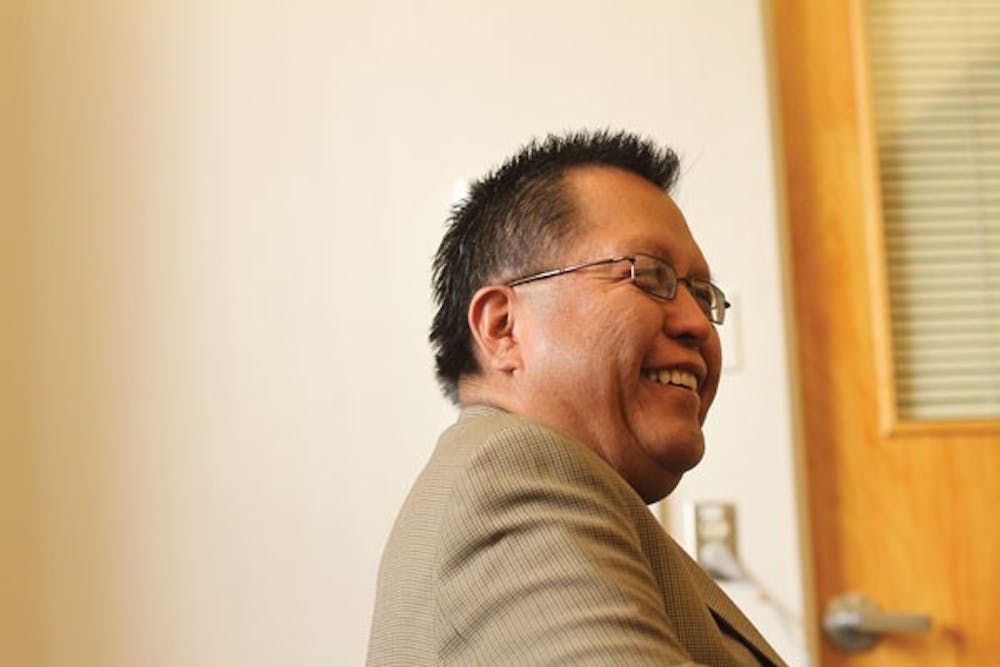A professor from Diné College, the nation’s first tribally-run college, in Tsaile, Ariz., spoke Monday about cultural identity and assimilation in a Tempe campus lecture.
Based on his research on Native American traditions and culture, professor Wesley Thomas said the ways diversity is being redefined in America have affected more cultures than just Native Americans.
Language extinction, religious dysfunction and culture itself are issues of concern with ethnic identity loss, Thomas said.
“Language is the adhesive that keeps culture together. Then, religious function of a particular culture and the culture itself define an ethnic makeup,” Thomas said. “During assimilation, the practices [of ethnic groups] begin to mimic what is happening around them in their communities and thus making them uniquely theirs.”
Though assimilation and acculturation have affected many minority groups in America, Thomas focused on the Native American culture that has been generally disregarded in the defining of American culture.
“America pretty much has dominated Native American communities,” he said. “[Americans] have become dismissive and expect everyone else to cater to them. They have no interest in learning the language or culture and have very little respect for the native communities. They are oblivious to what it takes to be a part of a rich community.”
Melissa Boyd, an art history and secondary education sophomore, said her German, Mexican and Apache ethnic makeup and strong identity as a Tejano — or a person strongly affiliated with the Tex-Mex culture — have all affected her outlook on acculturation and assimilation.
The strong connections Boyd’s parents have to their diverse ethnic backgrounds have been instilled in her, she said.
“I was raised in a Catholic home, and it’s almost the only reason why our tradition still continues. We are connected through our religious practices,” Boyd said. “Although I have had a strong Mexican influence in my home, they (parents) encouraged us to educate ourselves in our Apache culture as well as our Mexican culture so we wouldn’t lose that important aspect of our ethnic background.”
Since many individuals represent a diverse mix of cultures, it can be difficult understanding and practicing the cultures of them all, she said.
However, Boyd said her ethnic background has enriched her state of mind and influenced her ability to adapt to a unique and developing American culture.
It is about finding and recognizing your sense of place without losing your distinctiveness and identity, Thomas said, adding that he fears this loss of personal identity will disrupt the social network.
“Dominant [American] culture is assimilating and causing a utopian ideology of identity,” Thomas said. “It is important to stay connected with your own culture while remaining immersed in society at large.”
Reach the reporter at asjohn10@asu.edu





